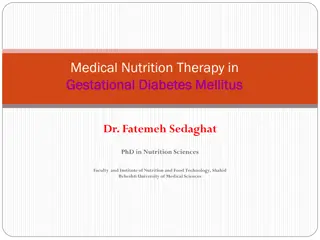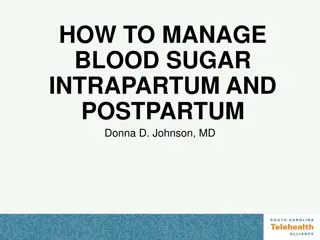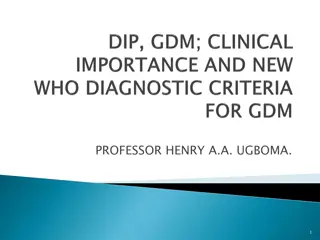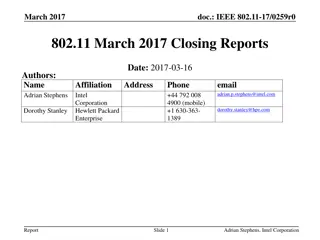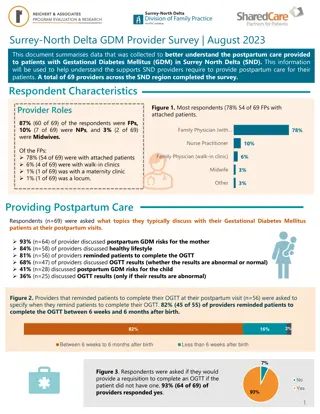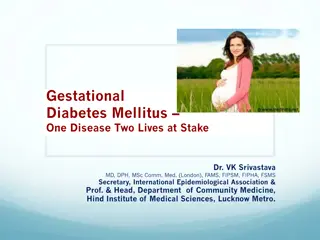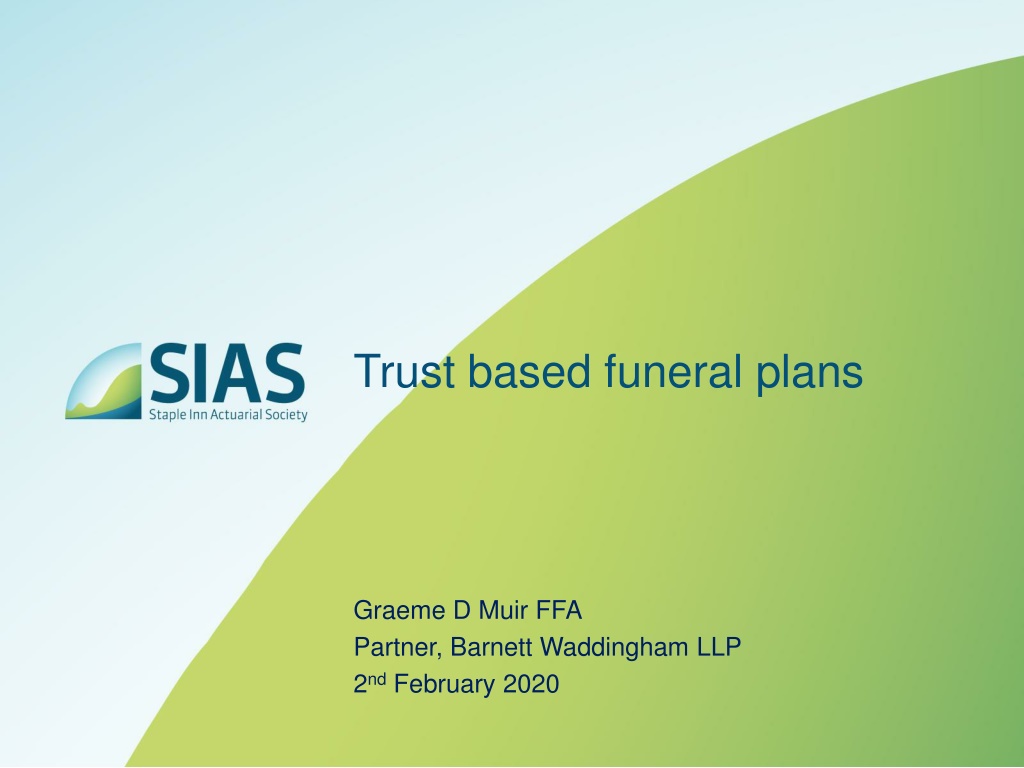
Understanding Trust-Based Funeral Plans and Key Aspects
Explore the concept of trust-based funeral plans, their background, key aspects such as sales channels, cancellation policies, and risks involved. Learn about the beneficiary, provider costs, and the regulation of these plans in the market.
Download Presentation

Please find below an Image/Link to download the presentation.
The content on the website is provided AS IS for your information and personal use only. It may not be sold, licensed, or shared on other websites without obtaining consent from the author. Download presentation by click this link. If you encounter any issues during the download, it is possible that the publisher has removed the file from their server.
E N D
Presentation Transcript
Trust based funeral plans Graeme D Muir FFA Partner, Barnett Waddingham LLP 2ndFebruary 2020
Background Been around for a while I got involved 1991 ish Back in the day . Widow pays for her funeral at time of husband s funeral Some funeral directors may have put it into trust Suspect some put it into their bank account Different sort of trusts Individual funeral director trusts / multi funeral director trusts Funeral director business Independent and corporate sectors Concept is the same Pay now die later It s not insurance even if it looks like it And it s not a regulated product ..yet
Some other key aspects Different sales channels Funeral director / plan provider / intermediary Plans have a value Amount that trust pays out if planholder dies tomorrow Amount paid may vary depending on sales channel and other factors One single FD trust just pays out assets / number of plans in force Quite an easy valuation . The deliverable is a funeral not a sum of cash Funeral director costs usually guaranteed by funeral director May be an allowance for disbursements (cremation etc) in the plan If it costs more family may have to pay excess Record voucher concept
Some other key aspects Plans may be cancelled Usually money back less an admin charge Single payment or instalment Usually different off the shelf plans Cheap and cheerful to the extravagant But some have optional extras or fully bespoke Beneficiary of the trust is the funeral director Not the planholder (directly) Risks are mainly with the funeral director who has contracted to carry out the funeral as specified
Some other key aspects Usually some initial deduction to meet provider costs Admin fee and or % reduction at outset Or a plan admin fee per annum Can be chunky Funeral director going bust risk Provider will usually find someone else Over 50s Parkinson plans Just whole of life policies that pay out cash that could be used to meet funeral costs Sum assured usually increases at fixed rate e.g. 2% p.a. Not funeral plans even if that is how they are marketed Some Parkinson plans may be assigned to a funeral director so are then funeral plans
Regulation Up until 2000 None but seemed to self regulate quite well albeit a small market Financial Services and Markets (Regulated Activities) Act 2000 Funeral plans are a regulated product unless insured, or, Money is in trust with mostly independent trustees, proper advisers and annual accounts and actuarial valuations every 3 years Funeral Planning Authority set up in 2002 for trust backed plans Oversees maybe 95% of plan providers But membership not compulsory so scope for some cowboys Some form of more stringent regulation will happen Might be FCA and probably sometime soon Focused more on the sales process by provider rather than funding / trust Insurance backed plans already regulated
Actuarial valuations Projection of payments from the trust allowing for Planholder mortality and iIncrease in plan values some form of inflation Discount to obtain NPV Sounds simple enough! However trusts are taxed on income and capital gains net of expenses In a few and quite different and complicated ways and need to consider expenses Discount rate derivation needs some thought Planholders typically Female and lower socio economic groups Or lives with short life expectancy No underwriting required usually Average age at entry usually in 70s for single payment 60s for instalments Mortality might not be just age and sex dependent Sales channel usually a key factor TAS 400!
Final thoughts Plan terms and conditions need to be well understood Analyse marketing literature and T&Cs These things tend to change over time Older plans may have different T&Cs Mortality is a big assumption ELT tables usually not far off But probably too light at ages under 60 Need to understand how the trust is taxed No single taxation regime The trusts can be huge relative to the plan provider business If in deficit then usually have to reduce payments to funeral director Planholder still gets the promised funeral though
Thank you Any questions? firstname.secondname@companyx.com
Disclaimer The views expressed in this presentation are those of the speaker, Graeme Muir and not necessarily of the Staple Inn Actuarial Society or Barnett Waddingham











